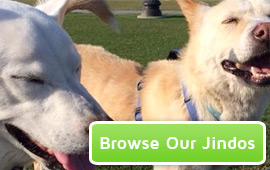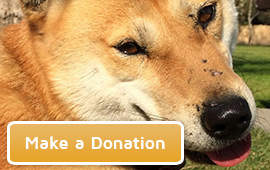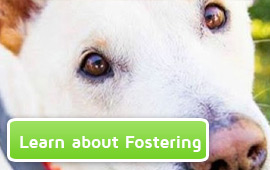5 keys to handling a dominant dog
(from Cesar Millan)
Like humans, very few dogs are natural born leaders, but you may wind up with a dominant dog that would normally take the lead position in the pack. If you are not the Pack Leader yourself this can cause problems, as a dominant dog will gravitate toward being in charge given the chance.
However, if you take the steps to establish yourself as leader of the pack, you can have a wonderful and balanced relationship with a dominant dog. Here are five things to keep in mind when dealing with an alpha dog.
You need to be even more calm-assertive
Dogs will not follow unstable energy. This is even truer of alpha dogs, who will try to correct what they see as unbalanced behavior. This is why, when dealing with a dominant dog, you have to be even calmer and more assertive than normally.
If you’re anxious or nervous, your dog will sense this, and a dominant dog will see it as their cue to take charge. On the other hand, if you are calm and assertive, a dominant dog will read this as everything is all right, and they won’t feel the need to protect and direct their pack, i.e. you.
Set rules, boundaries, and limitations
Again, rules, boundaries, and limitations are even more important for dominant dogs because it focuses their dominance and gives them a way to express their confidence without using it on you.
At a minimum, there should be rules for where they can go in the house without your permission, they should always have to wait before going in or out the door, and they don’t get their food until they are calm and submissive.
With dominant dogs, you can take it a step further with things like agility training, which allows them to use up excess energy while leading themselves through the obstacle course.
Don’t force affection
Dominant dogs are naturally more aloof and solitary. Remember, in the pack, the leaders do not approach the followers. The followers come to the leaders. The trap that it’s easy for humans to fall into is to pursue their dog to give affection when the dog isn’t “cuddly” enough, which puts the dog in the leadership position.
If your dog is dominant, the best approach is to ignore her. When she wants attention, she will come to you, and this reinforces your role as the Pack Leader.
Use meal time to your advantage
In the pack, the leaders eat first, and the same should be true when the leaders are humans. For dominant dogs especially, you need to create a boundary around the family table, with the dog not allowed to approach while the people are eating.
When it comes to feeding time, your dog must be calm and submissive before you even begin the process, and wait in that calm submissive state until you have put the bowl down, walked away from it and given the “okay” for your dog to eat.
Give your dog a job
Dominant dogs in particular need to fulfill a role in the pack, which is why it’s important for you to give your dog a job. This can be as simple as having them wear a backpack on the walk, or you can train your dog in agility, search and rescue, obedience, herding, Treibball, and more.
If your dog is dominant, then you need to be an even stronger Pack Leader. Keeping these five points in mind will help keep you on top and your relationship with your dog happy and balanced.
Read more: http://www.cesarsway.com/dog-behavior/basics/5-keys-to-handling-a-dominant-dog?utm_content=5%20keys%20to%20handling%20a%20dominant%20dog&utm_campaign=CW.com%20Article&utm_source=Facebook&utm_term=dominant%20dog%2Cbasics%2CTips%2Cdog%20training%2Cdog%20behavior&utm_medium=1414253282#ixzz3HBIwdEQN



